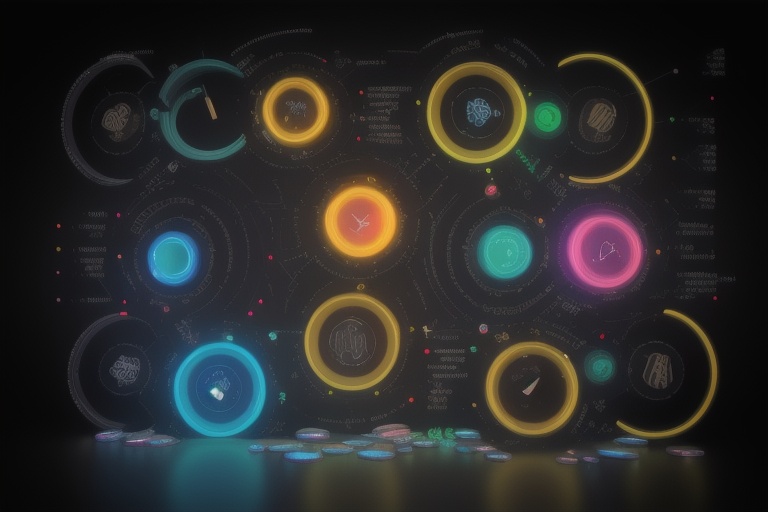The realm of artificial intelligence (AI) is teeming with innovations that inch machines closer to the nuances of human thought processes. Key to these developments is the AI's burgeoning ability to comprehend cause and effect, an understanding that could revolutionize how we approach learning and problem-solving. Rohit Bhattacharya, a trailblazing PhD student in computer science, embodies this pursuit. His ongoing project aims to create a tool that will significantly aid physicians in determining the suitability of immunotherapy for cancer patients based on their unique genetic makeup. Immunotherapy, a treatment that enlists the individual's immune system to fight cancer, shows enhanced effectiveness against cancers that produce particular proteins. Bhattacharya's groundbreaking method employs neural networks to analyze the genetic signatures of both the tumor and the patient's immune system to forecast the likelihood of a favorable response to the therapy.
The realm of artificial intelligence (AI) is teeming with innovations that inch machines closer to the nuances of human thought processes. Key to these developments is the AI's burgeoning ability to comprehend cause and effect, an understanding that could revolutionize how we approach learning and problem-solving. Rohit Bhattacharya, a trailblazing PhD student in computer science, embodies this pursuit. His ongoing project aims to create a tool that will significantly aid physicians in determining the suitability of immunotherapy for cancer patients based on their unique genetic makeup. Immunotherapy, a treatment that enlists the individual's immune system to fight cancer, shows enhanced effectiveness against cancers that produce particular proteins. Bhattacharya's groundbreaking method employs neural networks to analyze the genetic signatures of both the tumor and the patient's immune system to forecast the likelihood of a favorable response to the therapy.
Impact on Healthcare
Bhattacharya's research bears the promise of extraordinary impact on healthcare practices. Typically, physicians might depend on a trial-and-error method to ascertain the most viable treatment for cancer patients, a methodology that is as taxing as it is time-consuming. With AI systems that can intricately analyze genetic information and reliably forecast treatment outcomes, healthcare providers will be armed with a potent asset for making enlightened decisions. The implications are far-reaching: expedited treatment processes, conservation of medical resources, and, paramount, enhanced patient survival rates.
Challenges in AI Development
Despite the potential, crafting AI systems with a robust comprehension of consequences is a daunting challenge. It calls for the construction of intricate models that can accurately simulate cause and effect relationships. AI has traditionally shined in pattern recognition but often falters when tasked with discerning the reasons that engender those patterns. This has been a significant roadblock, particularly in sectors like healthcare where the grasp of causality is imperative.
The Role of Human Cognition
To propel AI past this hurdle, researchers are borrowing from the very essence of human cognition. One leading-edge approach under exploration is endowing AI with the ability to employ imagination and experience regret. By engineering machines that can envision various situations and assess the potential regret from resultant outcomes, AI systems can cultivate a deeper understanding of the repercussions of their decisions. This capability would enable them to learn from hypothetical experiences, much as humans do, enhancing their decision-making acumen.
Yet, equipping AI with these sophisticated cognitive faculties is an ambitious undertaking. It hinges on progress in the realms of machine learning algorithms, burgeoning hardware technologies, and the troves of data that feed these systems. While researchers are making headway on these fronts, the journey is still arduous, with much terrain to navigate.
Broader Implications
The implications of AI systems that fathom consequences extend well beyond healthcare. Consider the domain of autonomous vehicles. Here, discerning causality is not just a boon but a necessity for making swift, life-critical decisions. AI that can predict the outcome of various actions is pivotal in engineering transportation systems that not only avert accidents but elevate traffic flow efficiency.
The quest to equip AI with an understanding of consequences is a cornerstone for unlocking novel opportunities across a spectrum of industries. Bhattacharya's work poises just at the cusp of this thrilling vanguard. As we hone AI's grasp of cause and effect, we venture ever nearer to creating machines that can mirror the intricate reasoning of human intelligence. The ripple effect of such advancements promises to cascade benefits across society.
In our forthcoming segment, we will investigate the intricacies of molding AI systems that empathize with consequences. Furthermore, we'll examine the potential ethical considerations posed by these advanced technologies. Join us as we continue to unpack the complexities and breakthroughs defining this dynamic frontier of AI research.
Information for this article was gathered from the following source.




